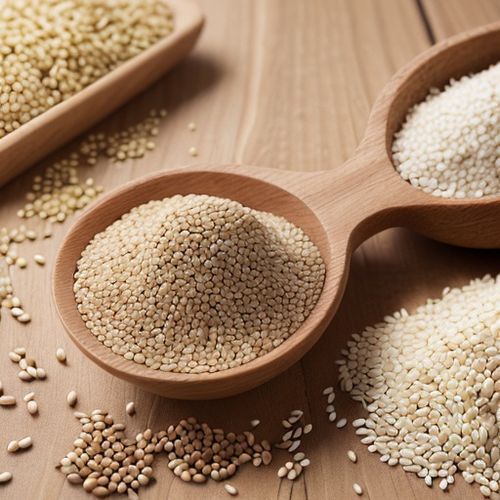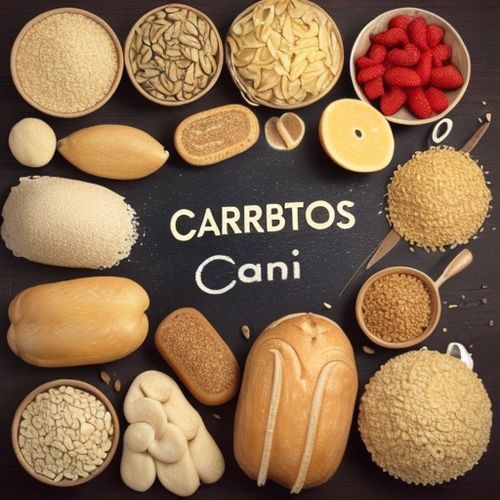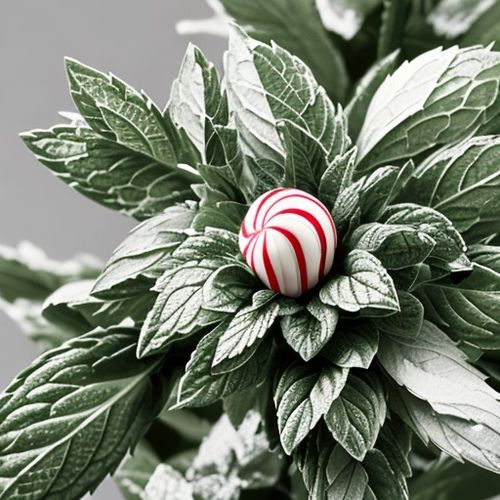When you think of peppermint, the first thing that probably comes to mind is the refreshing, sweet taste of candy canes, especially during the holiday season. However, peppermint is much more than just a festive treat. This versatile herb, a cross between watermint and spearmint, has been revered for its health benefits for thousands of years. Ancient civilizations in Greece, Rome, and Egypt all documented the use of peppermint for digestive issues and other ailments. Today, peppermint continues to be a popular choice for natural health remedies and culinary delights.
The Health Benefits of Peppermint
Peppermint is a powerhouse of natural healing properties. Dr. Teresa Lovins, a family medicine practitioner, explains that peppermint leaf and peppermint oil have a long history of use for treating digestive disorders and can be helpful for nausea, reducing bloating, and treating cold sores. Let’s explore the various ways peppermint enhances health:
Eases Digestion and Stomach Pain
Overindulgence in food and drink often leads to common stomach issues such as indigestion, gas, and bloating. Peppermint can be a natural remedy for these discomforts. According to Mount Sinai, the primary active ingredients in peppermint—menthol and methyl salicylate—possess antispasmodic properties that help calm the gastrointestinal tract.
For children suffering from an upset stomach, a review of 14 clinical trials demonstrated that peppermint significantly reduced the frequency, length, and severity of stomach pain. In a study conducted on cancer patients undergoing chemotherapy, participants who received one drop of peppermint oil on the spot between their upper lip and nose three times a day for five days following chemotherapy experienced a significant reduction in the frequency and severity of nausea and vomiting.
For those with irritable bowel syndrome (IBS), peppermint oil has shown promise in providing relief. One review indicated that taking peppermint oil for two weeks could alleviate IBS symptoms, while another study showed a 40% reduction in symptoms when participants took the oil for four weeks.
Reduces Cold Symptoms
When congestion and a sore throat strike, peppermint oil can be a valuable ally. Dr. Lovins explains that menthol, the active ingredient in peppermint oil, can help reduce cold symptoms by acting as a decongestant and expectorant. A hot cup of peppermint tea can also clear sinuses thanks to its anti-inflammatory properties, making it easier to breathe.
Relieves Headaches
Applying peppermint oil to the forehead and temples can help alleviate headaches. This effect may be due to menthol’s ability to increase blood flow and provide a cooling sensation, which can help reduce pain. A small study confirmed this by showing that applying peppermint oil to these areas provided significant pain relief and eased nausea associated with migraines. A 2019 study found that intranasal drops of peppermint oil reduced the intensity and frequency of migraine attacks and relieved pain in the majority of participants.
Soothes Itchiness
The cooling effects of peppermint can help soothe itchiness and rashes. One study found that a combination of peppermint oil and petrolatum eased itchiness in participants. Peppermint can also help with skin irritation from hives, poison ivy, and poison oak. However, Dr. Lovins cautions that some people may develop rashes from peppermint oil, so it’s important to perform a test patch before applying it to larger areas of the skin.
Ways to Use Peppermint
Peppermint can be incorporated into your daily routine in various ways:
- Baths and Diffusers: Add peppermint oil to a warm bath or an essential oil diffuser to help with headaches and congestion.
- Peppermint Tea: Brew fresh peppermint leaves in hot water for five to 10 minutes and sweeten with a drop of honey for an upset stomach.
- Smoothies: Blend a handful of peppermint leaves into your favorite smoothie for a refreshing twist.
- Cooking: Add peppermint extract to desserts like homemade ice cream or chocolate avocado pudding for a nutritious treat. Chopped peppermint leaves can also enhance the flavor of fruit salads.
- Candy: Enjoy festive peppermint candies, candy canes, or bark, or make your own for a delightful treat.
Possible Side Effects and Considerations
While peppermint offers numerous health benefits and adds a refreshing flavor to recipes, it is not without potential downsides. The National Center for Complementary and Integrative Health advises caution with the following:
- Oral Consumption: Potential side effects of peppermint oil taken orally include heartburn, nausea, abdominal pain, and dry mouth. In rare cases, it can cause an allergic reaction.
- Capsules: Peppermint oil capsules typically have a protective coating to reduce the risk of heartburn. However, this coating can break down quickly if taken with antacids.
- Skin Application: Applying peppermint oil to the skin can cause rashes and irritation in some individuals. It’s best to perform a test patch first.
- Infants and Children: Peppermint oil should not be used on infants and young children.
- Pregnant and Breastfeeding Women: Pregnant and breastfeeding women should avoid peppermint oil due to insufficient research on its safety in these populations.
Consultation with Healthcare Providers
When considering adding peppermint to your health regimen, it’s essential to consult with a healthcare provider. Dr. Lovins emphasizes that there is no magic herb or supplement that can solve all health issues. She encourages patients to discuss any supplements or herbs they are considering with her, as they may exacerbate other symptoms or interact with medications.
Peppermint is a versatile herb with a rich history of use for various health benefits. From easing digestive issues and reducing cold symptoms to relieving headaches and soothing itchiness, peppermint offers a natural and refreshing solution. However, it is important to be aware of potential side effects and to consult with a healthcare provider before incorporating peppermint into your routine. Whether enjoyed as a tea, used in cooking, or applied topically, peppermint can enhance both your health and culinary experiences.

By George Bailey/May 12, 2025

By Amanda Phillips/May 12, 2025

By Thomas Roberts/May 12, 2025

By Benjamin Evans/May 12, 2025

By Natalie Campbell/May 12, 2025

By Lily Simpson/May 12, 2025

By Megan Clark/May 12, 2025

By Christopher Harris/May 10, 2025

By Emma Thompson/May 10, 2025

By Ryan Martin/May 10, 2025

By Michael Brown/May 10, 2025

By Sophia Lewis/May 10, 2025

By Eric Ward/May 10, 2025

By George Bailey/May 10, 2025

By Elizabeth Taylor/May 10, 2025